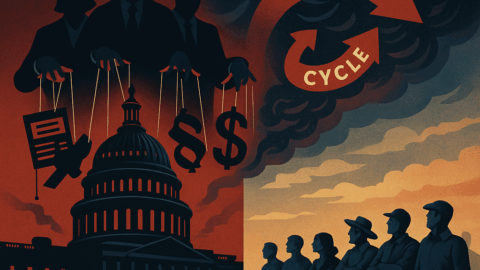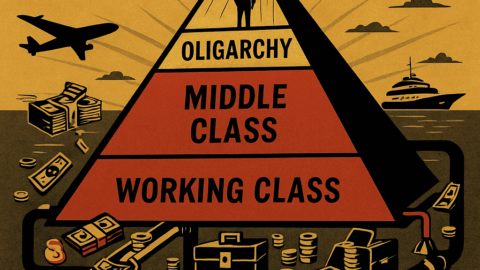“Wisdom tends to grow in proportion to one’s awareness of one’s ignorance.” — Anthony de Mello
This profound quote by Anthony de Mello, a Jesuit priest and spiritual teacher, captures a key truth about the nature of wisdom, humility, and self-awareness. It emphasizes that true wisdom isn’t about accumulating endless knowledge but about recognizing how much one doesn’t know. This realization becomes a gateway to continuous learning, growth, and a deeper understanding of oneself and the world.
Understanding the Quote
- Wisdom vs. Knowledge: Knowledge involves collecting facts, information, and skills, while wisdom involves the discernment and appropriate application of that knowledge in meaningful ways.
- Awareness of Ignorance: True wisdom begins when we realize that our understanding is limited, fallible, and incomplete.
- Growth Through Humility: The recognition of ignorance creates an openness to learn, listen, and grow, which ultimately fosters wisdom.
Core Message:
The more we acknowledge our limitations and ignorance, the more we can cultivate wisdom because we approach life with curiosity, humility, and a willingness to learn.
Why Awareness of Ignorance is Essential for Wisdom
a. The Illusion of Knowledge (The Dunning-Kruger Effect)
- The Dunning-Kruger Effect is a psychological principle where individuals with low ability or knowledge in a certain area overestimate their competence, while those with higher knowledge tend to underestimate their abilities because they are more aware of the vastness of what they don’t know.
- A wise person avoids falling into this trap because they recognize their limitations.
Example:
- Someone who reads a few articles on a complex subject may believe they have mastered it, while an expert understands how much more there is to learn.
b. The Socratic Paradox: “I know that I know nothing.”
- The Greek philosopher Socrates believed that true wisdom comes from the acknowledgment of one’s ignorance.
- The more you learn, the more you realize how vast the unknown truly is.
Example:
- A scientist who dedicates their life to studying the cosmos knows that despite their expertise, the universe remains largely a mystery.
c. Intellectual Humility
- Intellectual humility means being open to the possibility of being wrong and valuing questions over answers.
- Wisdom grows when we set aside arrogance and embrace curiosity.
Example:
- A leader who admits they don’t have all the answers can collaborate effectively, invite diverse perspectives, and foster innovation.
Practical Applications of the Quote
a. In Personal Development
- When we accept our ignorance, we become more teachable.
- Self-awareness helps us identify our blind spots and encourages growth.
Action Step:
- Regularly ask yourself, “What am I missing here?”
- Embrace lifelong learning and curiosity.
b. In Relationships
- Recognizing ignorance in relationships allows for better communication, empathy, and conflict resolution.
- Instead of assuming you fully understand someone else’s perspective, you remain open to listening and learning from them.
Action Step:
- Replace assumptions with questions like, “Can you help me understand your perspective better?”
c. In Leadership and Decision-Making
- Leaders who understand their limitations are more likely to seek counsel, collaborate, and make thoughtful decisions.
- Overconfidence can lead to mistakes, while humility can prevent costly errors.
Action Step:
- Surround yourself with diverse opinions and listen actively to others’ insights.
The Relationship Between Wisdom, Ignorance, and Curiosity
- Ignorance isn’t inherently bad—it’s a natural starting point for growth and discovery.
- Curiosity bridges the gap between ignorance and wisdom.
- When we accept our ignorance, we ask better questions, explore deeper truths, and avoid settling for superficial understanding.
Example:
- Scientists often begin their research with a deep acknowledgment of what they don’t know. This drives them to ask profound questions and make groundbreaking discoveries.
Spiritual and Philosophical Insights
a. Eastern Philosophy (Taoism and Buddhism)
- Eastern philosophies often emphasize the importance of humility, self-awareness, and the recognition of our limited understanding.
- Wisdom is seen as the result of surrendering the ego and embracing the vast mystery of existence.
Example:
- In Zen Buddhism, the concept of “Beginner’s Mind” (Shoshin) encourages approaching life with openness and a lack of preconceptions.
b. Christianity and Humility
- In Christian teachings, humility is often presented as a virtue closely linked to wisdom.
- Proverbs 11:2: “When pride comes, then comes disgrace, but with humility comes wisdom.”
Overcoming Barriers to Acknowledging Ignorance
- Ego and Pride: The biggest barrier to recognizing ignorance is often pride and fear of appearing weak.
- Social Conditioning: Many cultures reward certainty and confidence, even when it’s misplaced.
- Fear of Vulnerability: Admitting ignorance can feel uncomfortable or even humiliating.
Solution:
- Cultivate a growth mindset (Carol Dweck’s concept) where mistakes and ignorance are viewed as opportunities to learn.
Final Reflection
Key Takeaways:
- True wisdom starts with recognizing how much we don’t know.
- This awareness fosters humility, curiosity, and openness.
- Wisdom is not a destination but a journey fueled by ongoing self-awareness and growth.
Practical Questions for Reflection:
- Am I open to admitting when I don’t know something?
- Do I ask thoughtful questions, or do I pretend to have all the answers?
- How often do I seek perspectives outside my own knowledge base?
Conclusion:
The pursuit of wisdom isn’t about knowing everything; it’s about maintaining a sense of humility, curiosity, and a willingness to grow. As Anthony de Mello suggests, wisdom flourishes when we remain deeply aware of our limitations, our ignorance, and our endless potential to learn.







